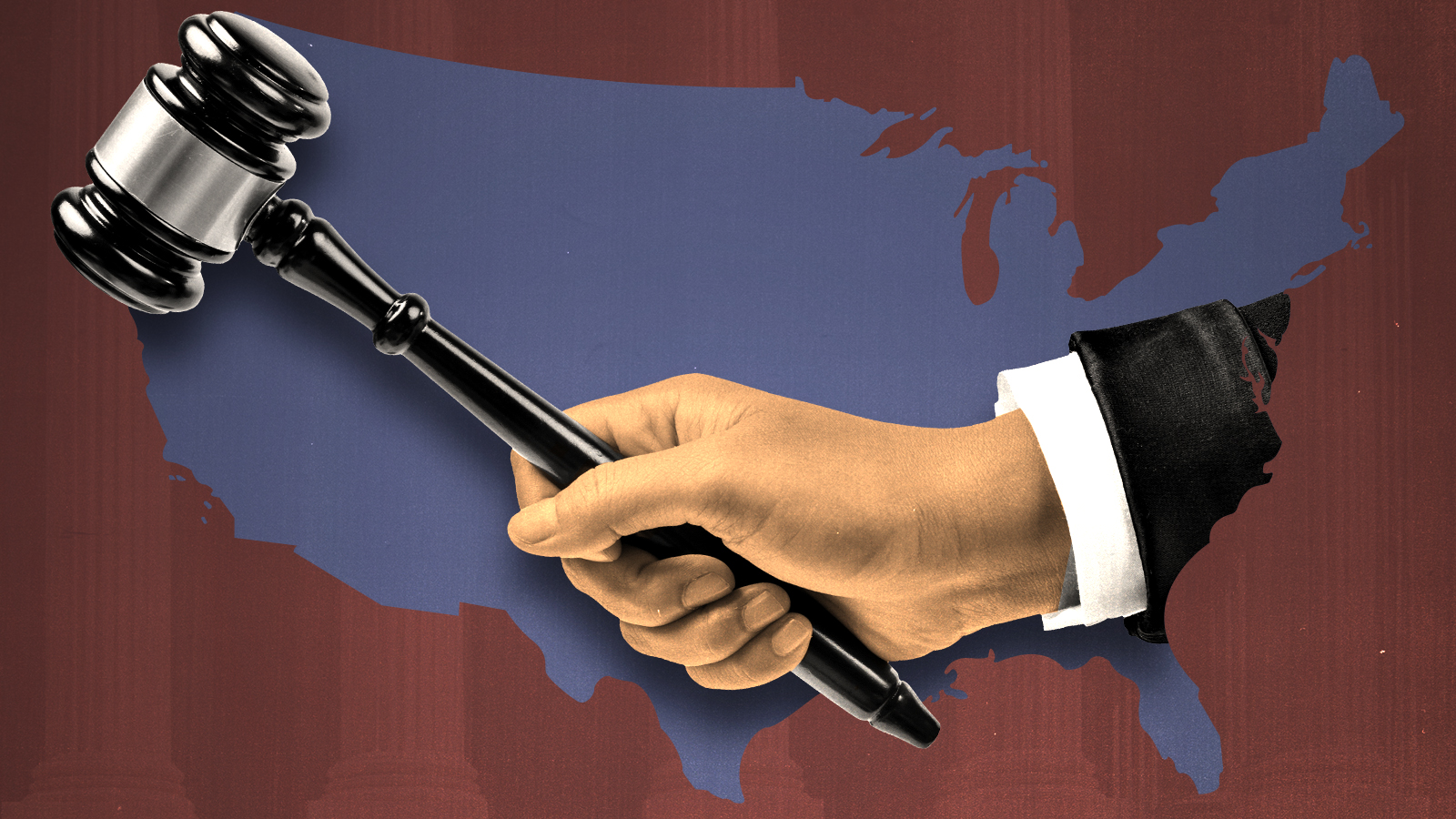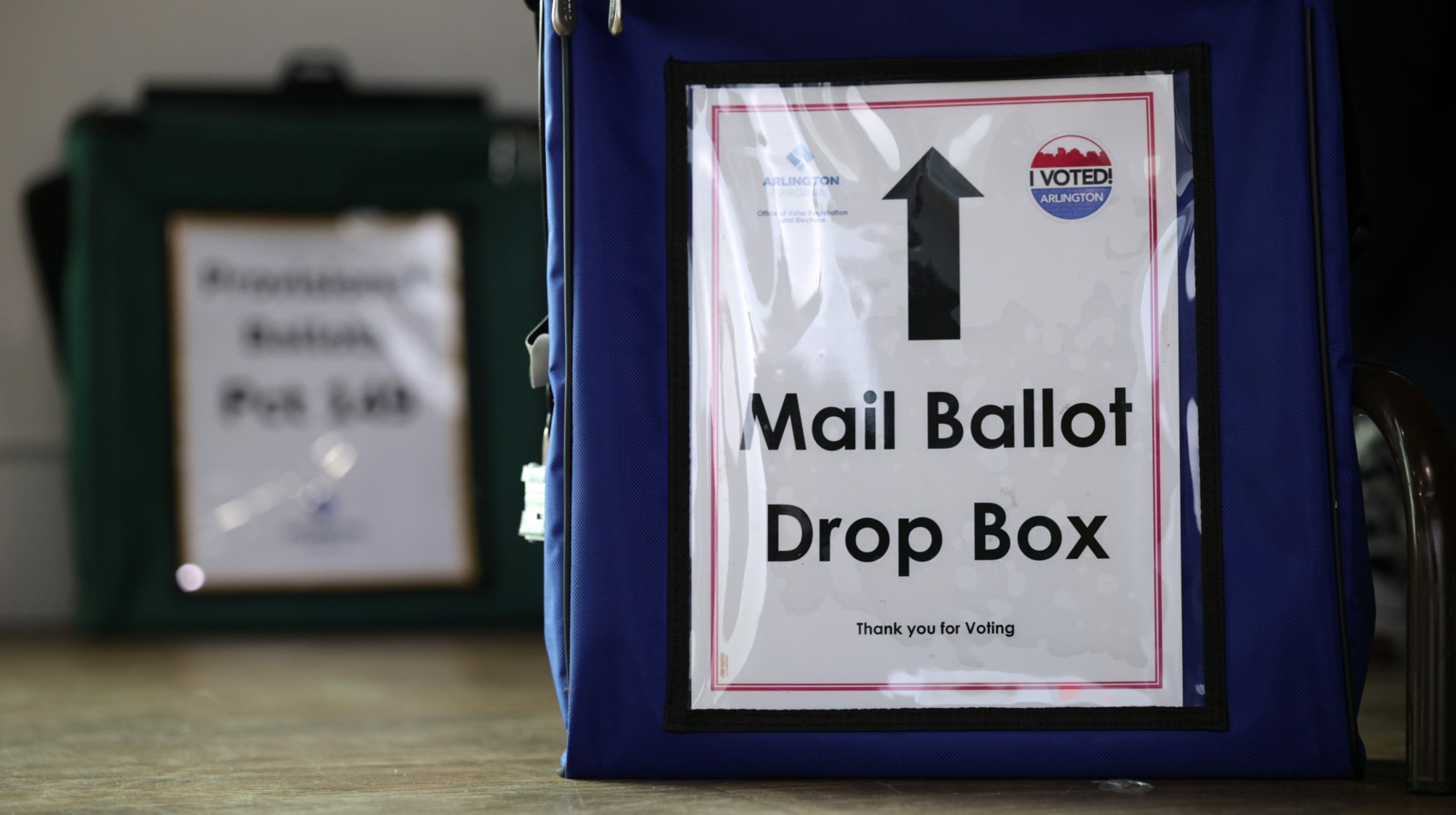What the conservative Supreme Court spells for America
The current court is the most conservative its been in the last 90 years. What does that mean for the country?


A free daily email with the biggest news stories of the day – and the best features from TheWeek.com
You are now subscribed
Your newsletter sign-up was successful
The current Supreme Court holds a conservative supermajority. What does that mean for the country? Here's everything you need to know:
When did the Supreme Court become conservative?
The Supreme Court has leaned conservative since the 1970s, when President Richard Nixon appointed Warren Burger as Chief Justice. The last liberal court was under Chief Justice Earl Warren and was one of the most liberal courts in American history, responsible for landmark cases including Brown v. Board of Education (1954), which removed racial segregation, and Miranda v. Arizona (1966), which requires a person to be told their rights and other criminal procedures.
The high court under Chief Justice Burger was described as a transition court between the extremely liberal Warren Court and the conservative court under Chief Justice William Rehnquist. The Burger Court most notably ruled in Roe v. Wade (1973), a topic of controversy for decades to come.
The Week
Escape your echo chamber. Get the facts behind the news, plus analysis from multiple perspectives.

Sign up for The Week's Free Newsletters
From our morning news briefing to a weekly Good News Newsletter, get the best of The Week delivered directly to your inbox.
From our morning news briefing to a weekly Good News Newsletter, get the best of The Week delivered directly to your inbox.
While the conservative lean of the Supreme Court has manifested for decades, the current court under Chief Justice John Roberts is the most conservative in the last 90 years. Currently, conservative judges outnumber liberal judges 6-3, giving the court a conservative supermajority. This is largely due to the three conservative judges appointed under President Donald Trump: Neil Gorsuch; Brett Kavanaugh; and Amy Coney Barrett, who replaced liberal judge Ruth Bader Ginsburg after her passing in 2020.
While these are the recent trends, the Supreme Court was designed to be nonpartisan and loyal only to the Constitution.
What has the ultra-conservative court done in America?
Since the Supreme Court reached a conservative supermajority, it has made a number of controversial rulings that have left the nation divided. However, the high court has also had a surprising number of unanimous and near-unanimous decisions as well, especially in 2021 right after the confirmation of Justice Barrett, reports ABC News.
In terms of controversial decisions, statistics show that in 62 percent of the decisions, conservatives prevailed. While the public is aware of the court's high-profile ruling in Dobbs v. Jackson Women's Health Organization (2022) — the case which overturned Roe v. Wade, removing the constitutional right to abortion access and returning discretion to states — the court also ruled conservatively in a number of other decisions.
A free daily email with the biggest news stories of the day – and the best features from TheWeek.com
In West Virginia v. EPA (2022), the Supreme Court ruled that the EPA does not have the power to set limits on emissions from power plants, which was discouraging for climate activist groups. In Carson v. Makin (2022), the court ruled that prohibiting state funds from being used at religious schools was a violation of the free exercise of religion clause in the Constitution. In New York State Rifle & Pistol Association, Inc. v. Bruen (2022), the ruling was that it is unconstitutional to require a license to carry a concealed weapon. There were also a number of cases involving COVID-19 testing and vaccine requirements that split the court but were ultimately ruled in favor of the conservative justices. These represent just a handful of rulings that have reestablished the way law has been looked at in the past.
The Supreme Court also made a number of unanimous decisions including Shurtleff v. Boston (2022) and Houston Community College System v. Wilson (2022), both cases involving the freedom of speech. A surprising, unanimous decision was in Fulton v. Philidelphia (2021), in which the court ruled that Philadelphia's refusal to contract with Catholic Social Services for foster care services unless they to certify same-sex couples as foster parents violates the free exercise clause of the First Amendment. Fulton v. Philadelphia was likely an attempt by the high court to prove they still remain nonpartisan because they only ruled looking at the facts of the case and did not speak to whether a religious exemption could be awarded in any instance, ABC News reports.
One way to evaluate a Supreme Court is to look at the "median justice," which is the Justice that sits the most centrally in the ideologies of all the justices. While previously Justice Roberts represented the center point, the new center is Justice Kavanaugh. That illustrates the ideological shift of the court being pushed conservative and that at any given point, two conservative judges would need to side with the liberal justices for a liberal ruling to win, as explained by FiveThirtyEight.
How has the public reacted?
The public opinion of the Supreme Court has shifted tremendously in the past year, especially following the overturning of Roe. A national survey by Pew Research Center showed that 54 percent of U.S. adults have a favorable opinion of the Supreme Court while 44 percent have an unfavorable view. The survey was taken in January of 2022, before the string of conservative rulings mentioned above. The statistics told a different story in the wake of the Dobbs decision: A Gallup study showed that only 25 percent of Americans still have confidence in the court, the lowest in history.
There have been numerous articles in publications such as The New York Times, Vox, and Politico describing the Supreme Court's legitimacy crisis, where the public is claiming that the Court has gone "rogue," ruling against the will of the people. A study conducted by The University of Texas, Austin found that the Supreme Court holds more conservative positions than 75 percent of Americans.
In light of the Dobbs decision, the public has become worried about other rights that could undergo the same treatment. In Kansas, the abortion issue was brought to ballots where the people voted to keep their abortion rights.
How has the court responded?
In response to criticism, Justice Roberts defended the court's integrity, stating "simply because people disagree with an opinion is not a basis for criticizing the legitimacy of the court."
Justice Elena Kagan had an opposite response, stating, "Judges create legitimacy problems for themselves ... when they instead stray into places where it looks like they're an extension of the political process or when they're imposing their own personal preferences."
In the upcoming midterm elections, the Supreme Court's decisions will likely be a major consideration for voters.
Devika Rao has worked as a staff writer at The Week since 2022, covering science, the environment, climate and business. She previously worked as a policy associate for a nonprofit organization advocating for environmental action from a business perspective.
-
 Quiz of The Week: 14 – 20 February
Quiz of The Week: 14 – 20 FebruaryQuiz Have you been paying attention to The Week’s news?
-
 The Week Unwrapped: Do the Freemasons have too much sway in the police force?
The Week Unwrapped: Do the Freemasons have too much sway in the police force?Podcast Plus, what does the growing popularity of prediction markets mean for the future? And why are UK film and TV workers struggling?
-
 Properties of the week: pretty thatched cottages
Properties of the week: pretty thatched cottagesThe Week Recommends Featuring homes in West Sussex, Dorset and Suffolk
-
 Minnesota’s legal system buckles under Trump’s ICE surge
Minnesota’s legal system buckles under Trump’s ICE surgeIN THE SPOTLIGHT Mass arrests and chaotic administration have pushed Twin Cities courts to the brink as lawyers and judges alike struggle to keep pace with ICE’s activity
-
 Supreme Court upholds California gerrymander
Supreme Court upholds California gerrymanderSpeed Read The emergency docket order had no dissents from the court
-
 Halligan quits US attorney role amid court pressure
Halligan quits US attorney role amid court pressureSpeed Read Halligan’s position had already been considered vacant by at least one judge
-
 The billionaires’ wealth tax: a catastrophe for California?
The billionaires’ wealth tax: a catastrophe for California?Talking Point Peter Thiel and Larry Page preparing to change state residency
-
 How robust is the rule of law in the US?
How robust is the rule of law in the US?TODAY’S BIG QUESTION John Roberts says the Constitution is ‘unshaken,’ but tensions loom at the Supreme Court
-
 Bari Weiss’ ‘60 Minutes’ scandal is about more than one report
Bari Weiss’ ‘60 Minutes’ scandal is about more than one reportIN THE SPOTLIGHT By blocking an approved segment on a controversial prison holding US deportees in El Salvador, the editor-in-chief of CBS News has become the main story
-
 The ‘Kavanaugh stop’
The ‘Kavanaugh stop’Feature Activists say a Supreme Court ruling has given federal agents a green light to racially profile Latinos
-
 Supreme Court to decide on mail-in ballot limits
Supreme Court to decide on mail-in ballot limitsSpeed Read The court will determine whether states can count mail-in ballots received after Election Day
